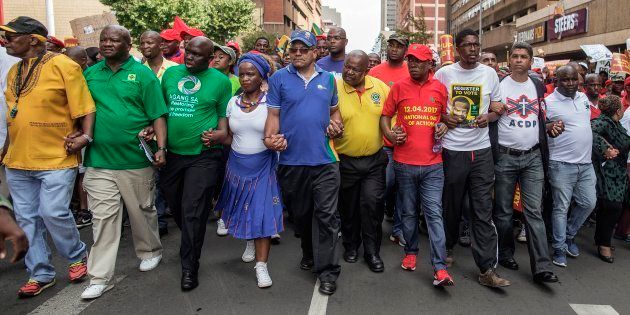A coalition of 11 South African opposition parties, united in their goal to displace the African National Congress (ANC) in the upcoming election, is facing the threat of division after its two largest members hinted at the possibility of co-governing with the ruling party in the absence of a clear electoral victory. ActionSA, a prominent member of the Multi-Party Charter, has announced plans to issue an ultimatum to the Democratic Alliance (DA) and the Inkatha Freedom Party (IFP), urging them to retract their statements indicating openness to forming alliances with the ANC.
The potential cooperation with the ANC by the DA and the IFP has sparked controversy within the opposition coalition, raising concerns about the unity and coherence of the anti-ANC alliance. ActionSA, in particular, has taken a firm stance against any collaboration with the ruling party, emphasising the need for a decisive break from ANC rule and advocating for a clean sweep of opposition parties in the election.
The rift within the opposition coalition underscores the complexities and challenges of forming a united front against the long-standing dominance of the ANC. While the prospect of cooperation with the ruling party may signal a pragmatic approach to governance and coalition-building, it also risks diluting the opposition’s message of change and reform.
As the election draws nearer, the opposition parties must navigate these internal tensions and differences in strategy to present a coherent and compelling alternative to the ANC. The outcome of the coalition’s deliberations and the extent of cooperation with the ruling party will shape the dynamics of South African politics in the coming years, with significant implications for the country’s democratic future.

